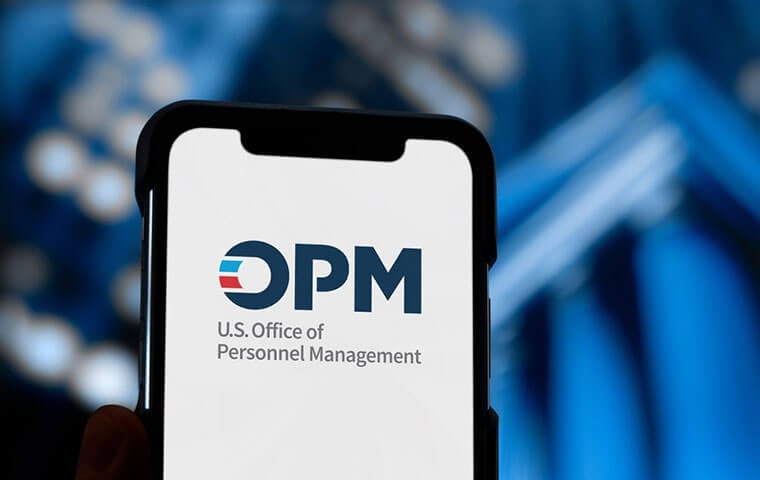 Image: PhotoGranary02/Shutterstock.com
By: FEDweek Staff
Image: PhotoGranary02/Shutterstock.com
By: FEDweek StaffFollowing are key sections of additional OPM guidance on Trump administration policies regarding retention of federal employees after their probationary periods, including that the policies apply to those hired before the executive order setting those policies who have not yet completed their probationary periods.
Question: What are the key policies regarding probationary and trial periods set forth in the Executive Order?
Answer: Agencies are to use probationary and trial periods as an extension of the hiring process that requires agency certification before employees continue their Federal employment beyond the probationary or trial period.
- Employees bear the burden of demonstrating why their continued employment through the finalization of their appointment is in the public interest.
- Agencies, in their sole and exclusive discretion, may consider four factors to assess whether an employee’s fitness for continued employment is in the public interest: the employee’s performance and/or conduct; the needs and interests of the agency; whether the employee’s continued employment would advance organizational goals of the agency or the Government; and whether the employee’s continued employment would advance the efficiency of the service.
- If an agency fails to make this certification due to administrative error, the head of an agency may petition the Director of OPM within 30 days of the termination to reinstate the employee.
- The EO removes Merit Systems Protection Board (MSPB) jurisdiction to adjudicate terminated probationary employees’ appeals, while allowing the OPM Director to set forth by regulation appeals procedures for terminated probationary or trial period employees.
Question: How will a probationary or trial period employee demonstrate their continuation of employment is in the public interest?
Answer: As directed in the Executive Order, agencies should consider the four factors enumerated in Civil Service Rule 11.5(d), in their sole and exclusive discretion: an employee’s performance and conduct; needs and interests of the agency; whether the employee’s continued employment would advance organizational goals of the agency or the Government; and whether the employee’s continued employment would advance the efficiency of the service.
Employees serving a probationary or trial period should take every opportunity to demonstrate their fitness and qualifications through sustained high performance, good conduct, and meaningful contribution to their agency’s mission. However, the ultimate determination as to whether the probationary or trial period employee’s appointment to the Federal service will be finalized rests with the discretion of the agency, as Congress intended when it passed the CSRA.
Question: Should agencies communicate these new probationary period/trial period requirements to current employees on probationary/trial periods?
Answer: Yes, agencies should communicate any changes and new agency procedures to current employees serving probationary/trial periods. Additionally, agencies should inform supervisors, managers, and human resources practitioners of these policy and process changes and their roles and responsibilities in executing these provisions.
Question: Do the new probationary/trial period requirements apply to current employees?
Answer: Yes, including the procedural requirements of sections 5(b) through 5(d) of the EO. In addition, Civil Service Rule 11.5 provides specific instructions for the application of the new requirements to current employees on probationary or trial periods.
Question: Do the new probationary/trial period requirements apply to new employees?
Answer: Yes., In addition, the procedural requirements of sections 5(b) through 5(d) of the EO apply for those appointed after July 23, 2025.
Question: Can agencies simply designate first-line supervisors as the designated evaluators for probationary or trial period employees?
Answer: Agencies should not simply designate first-line supervisors as the evaluators of probationary or trial period employees. Instead, agencies should designate at-least the second line supervisor, and ideally an official who is either politically appointed and/or is at the Senior Executive Service (SES) or equivalent level (such as a component or office head). This is to ensure that organizational goals and agency needs are properly considered in evaluating the continued service of probationary or trial period employees. Such officials should solicit the views of first-line supervisors.
Question: If an agency fails to notify the employee in advance of their termination or process their termination before the end of their tour of duty on the last day of their probationary or trial period, does the employee continue to serve in his or her position?
Answer: No. An agency’s failure to provide advance written notice or process the termination before the end of the employee’s tour of duty on the last day of their probationary or trial period does not automatically finalize the employee’s appointment for continued employment in the Federal government. Under 5 CFR 11.5, agencies must certify an employee within the 30 days prior to the end of the employee’s probationary or trial period for the employee to continue employment in the Federal service.
Without such certification, the employee is terminated by operation of these regulations and Executive Order 14284. In the rare circumstances where an agency fails to make a timely certification and out process the employee, the agency should consider whether to submit a petition to the Director of OPM under 5 CFR 11.5(f) to request reinstatement of the employee. Where the time period to submit a petition has elapsed or the agency declines to file a petition, it must take prompt and immediate action to terminate the employee including following its internal procedures for the collection of any debts.

